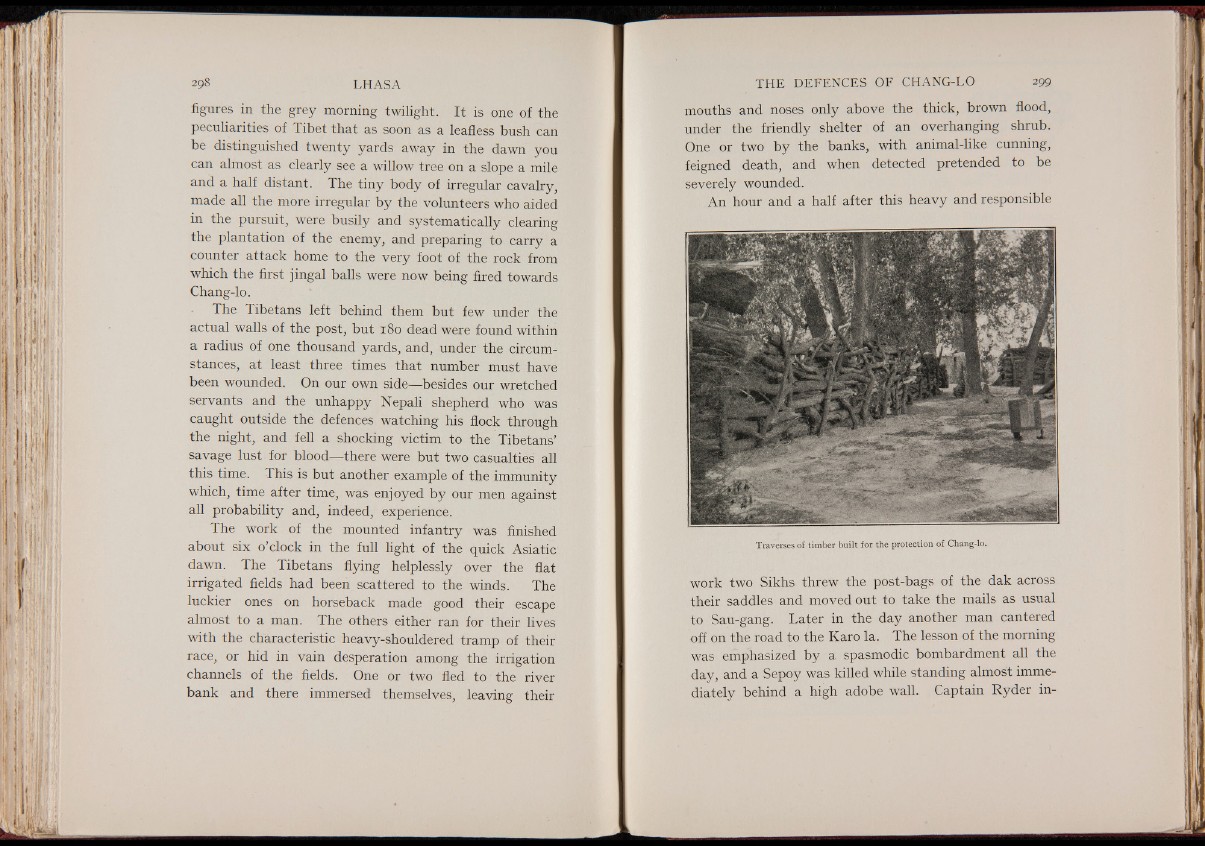
figures in the grey morning twilight. It is one of the
peculiarities of Tibet that as soon as a leafless bush can
be distinguished twenty yards away in the dawn you
can almost as clearly see a willow tree on a slope a mile
and a half distant. The tiny body of irregular cavalry,
made all the more irregular by the volunteers who aided
in the pursuit, were busily and systematically clearing
the plantation of the enemy, and preparing to carry a
counter attack home to the very foot of the rock from
which the first jingal balls were now being fired towards
Chang-lo.
The Tibetans left behind them but few under the
actual walls of the post, but 180 dead were found within
a radius of one thousand yards, and, under the circumstances,
at least three times that number must have
been wounded. On our own side— besides our wretched
servants and the unhappy Nepali shepherd who was
caught outside the defences watching his flock through
the night, and fell a shocking victim to the Tibetans’
savage lust for blood— there were but two casualties all
this time. This is but another example of the immunity
which, time after time, was enjoyed by our men against
all probability and, indeed, experience.
The work of the mounted infantry was finished
about six o’clock in the full light of the quick Asiatic
dawn. The Tibetans flying helplessly over the flat
irrigated fields had been scattered to the winds. The
luckier ones on horseback made good their escape
almost to a man. The others either ran for their lives
with the characteristic heavy-shouldered tramp of their
race, or hid in vain desperation among the irrigation
channels of the fields. One or two fled to the river
bank and there immersed themselves, leaving their
mouths and noses only above the thick, brown flood,
under the friendly shelter of an overhanging shrub.
One or two by the banks, with animal-like cunning,
feigned death, and when detected pretended to be
severely wounded.
An hour and a half after this heavy and responsible
Traverses of timber built for the protection of Chang-lo.
work two Sikhs threw the post-bags of the dak across
their saddles and moved out to take the mails as usual
to Sau-gang. Later in the day another man cantered
off on the road to the Karo la. The lesson of the morning
was emphasized by a spasmodic bombardment all the
day, and a Sepoy was killed while standing almost immediately
behind a high adobe wall. Captain Ryder in